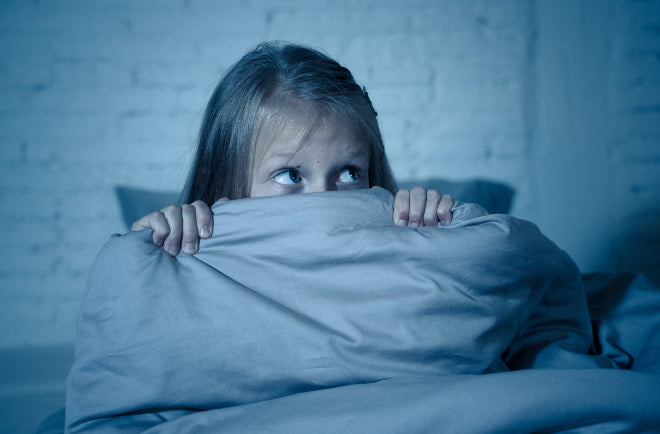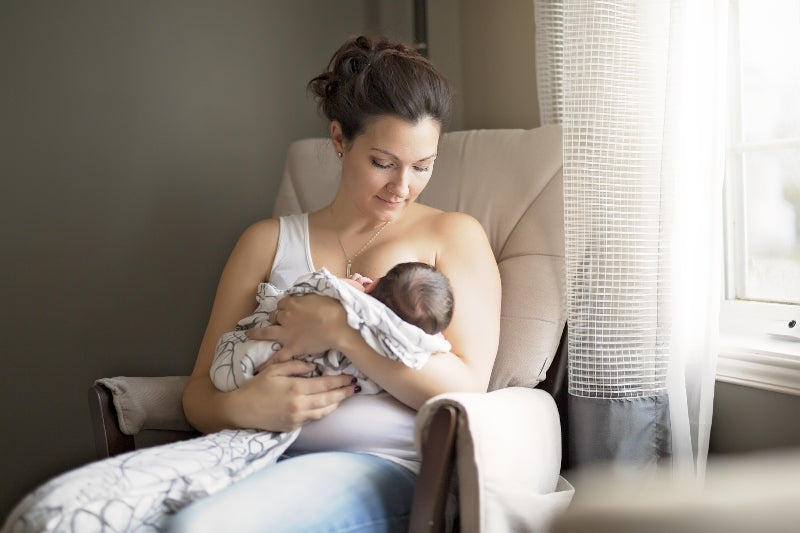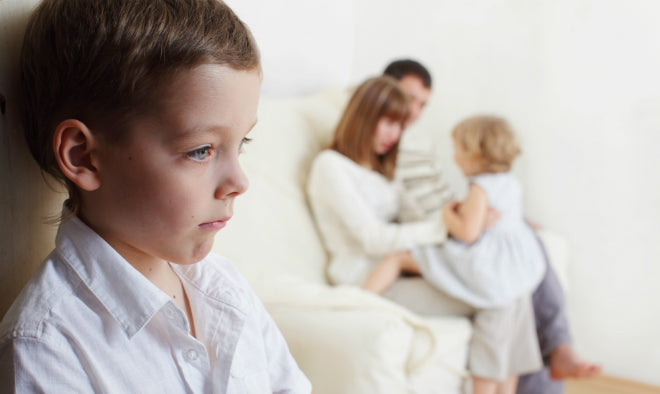" How parents should deal with night-time anxiety "
Fear of the dark is a widespread phenomenon among children. As soon as the light goes out in the children's room, the little ones are plagued by downright anxiety, so that a quiet night is out of the question. But why are many children afraid of the dark and where does this come from? How can parents support and strengthen their children?
Fear of the dark: Your perspective changes at night
Almost every parent is confronted with the famous monster under the bed at some point, which simply won't let their offspring fall asleep. The fears that often occur in children are fueled both by the child's imagination and by the experiences of the day. For example, a wiggling curtain can suddenly turn into a ghost or the little ones are firmly convinced that a ghost is lurking in the closet. Of course, this is where we parents come in, although we rarely get anywhere with children using adult logic.
With children, the boundaries between reality and reality are very often blurred, so that the little ones perceive their fears as extremely real.
Parental reassurances such as "There's no monster under the bed! Go to sleep now...!" are of course of no help. What can certainly help, however, is if you as a parent allow your child's imagination to become reality to a certain extent. Admittedly: Even if this view may seem strange to adults, it is still exactly what children need. Your child wants to be taken seriously and understood by you. They need a partner at their side who listens to them and is there for them in such situations.

Child in bed is afraid of ghosts
Is my child really afraid of the dark? If so, of what?
There are certainly small children who have respect for the dark, but no real fears. However, if your child can tell you straight away what they are afraid of when it gets dark in the nursery, it is highly likely that there is real anxiety behind it.
The older children get, the more likely it is that they suffer from real fears. In toddlers between the ages of 2 and 4, the most common reason for night-time anxiety is that the little ones find it difficult to differentiate between daytime and night-time fantasies. A toy can then quickly turn into an evil monster, even at night. There are no limits to a child's imagination here.

But there can also be other reasons for restless sleep at this age. Many little ones are now going to nursery school for the first time and have to process numerous impressions. In addition, the midday nap is now usually skipped, so that although the tired warriors literally fall into bed in the evening, they are often plagued by anxiety during the night.
Children from the age of 4 are usually plagued by completely different fears at night, as they have their fears and fantasies under control much earlier. Most children of this age have long known that there are no dinosaurs. They are often afraid of things that they have experienced and witnessed in real life:
- Separation anxiety: mom and dad are going to split up.
- Fear of divorce, because that's what happened to Maja and Hannes in kindergarten.
- Loud noises make you anxious: Loud conversations, the television, a thunderstorm, etc.
- Child does not want to lose control in the dark.
- Fears of being alone.
- Panic about the next day at school, kindergarten or swimming lessons.

Girl is afraid because her parents are arguing
In many cases, a previous argument with another child can also be the reason for the fear of the dark. Facing the whole thing and then having to defend yourself is not exactly easy for many. This means that the fears of pre-school and primary school children are not so dissimilar to those of adults. However, adults are better able to deal with confrontations because they simply have a lot more experience.
My child is afraid of the dark: What can I do?
For many parents, the question arises as to how they should deal with their child's fears. We have summarized the most important tips so that you can support and strengthen your child effectively and purposefully:
-
Take the fears seriously
You should try to address your child's fears and do something about them as specifically as possible. Does the monster come into the room at night? Then simply take a walk around the room together with the light on before going to bed and make sure that there is no evil monster lurking in any cupboard or corner. Perhaps you can also build a trap with your children that will paralyze the monster if it does appear. You can even find monster repellent spray on the internet. Of course, you can also make this yourself!

Girl in bed fights monsters in the night
-
Night light
If a child is afraid of the dark, they can't necessarily always define it exactly. Not every child is afraid of ghosts and the like, but in many cases the darkness itself causes discomfort.
Even a little light can give your child more security at night. Many parents love night lights that come in the design of a cuddly toy: Whether night light bunny, night light giraffe or night light dog - the child-friendly plush friends spread a touch of light in the children's room, they do not disturb healthy sleep and provide a rough orientation aid in the dark. For many, it is also reassuring if the door to the room is left ajar, allowing a little light from the hallway to illuminate the room. A little tip: simply turn the night light into a guardian light. This will reinforce the feeling of safety for your little one.
-
Cuddly toys, cuddly blankets & co. convey security
Did you also go to sleep with your favorite teddy bear as a child when it got dark outside? Sure, because a cuddly toy can be a really good friend and protector in many situations. A cuddly blanket often works wonders too. If the little ones have a soft stuffed animal or cuddly toy in their arms, this usually conveys a feeling of security and safety. A cuddly toy can also provide sufficient security in the dark and also provides cozy warmth on cold nights.


-
Bedtime rituals to combat fear of the dark
Evening bedtime rituals also have a very calming effect, as they give children a sense of security. Toddlers love it when mom or dad read a bedtime story or sing a lullaby together. Older children, on the other hand, like to use the time in the evening to discuss the day's events with their parents. Here they can get rid of everything that has kept them busy during the day. In many cases, time for this helps to significantly reduce anxiety in the dark.










